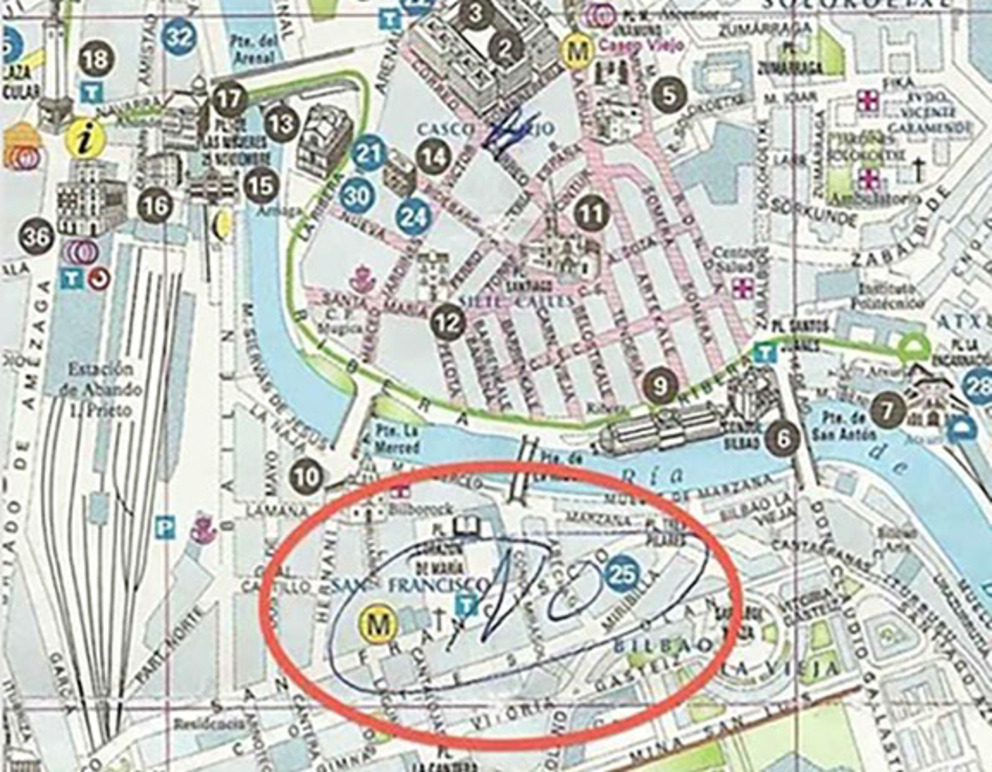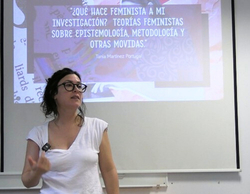
Irene Muedra wins the Antuan Montecatine competition with a final master's degree project on urban (in)security in the San Francisco district of Bilbao
Irene Muedra studied Geography at the University of Valencia, the city where she was born and in which she currently resides. She completed the Globalisation and Development master's programme offered by Hegoa and the University of the Basque Country (UPV/EHU) during the 2023/2024 academic year and has just won the Antuan Montecatine award for her final master's degree project (TFM) entitled "La (in)seguridad en la producción del espacio urbano. Una aproximación desde el barrio bilbaíno de San Francisco", “(In)security in the production of urban space: An approximation from Bilbao's 'San Francisco' district”.
She bases her final project on Henri Lefebvre's proposal for the production of space, which speaks of three dimensions: the lived, conceived, and perceived dimensions of space. Muedra uses that tool for analysis in the San Francisco district to interpret insecurity in terms of space. Following that analysis, she outlines the basics for an alternative approach to the concept of “citizen security” which she calls “community security”, a superior concept that would help to build safe spaces which are also socially just.
Irene Muedra has been researching this idea for several years now, embarking upon her work after realising at a neighbourhood meeting that residents were full of stories of insecurity and accounts of robberies and physical assaults. On the one hand, they were aware that this weakened the community; however, on the other hand, they did not want to get wrapped up in the usual discourse on security. They were concerned that some people thought the neighborhood had become "overrun with riffraff" –migrants and poor people– and they were aware of the need to have tools to address and respond to this dimension without stigmatising a part of the population.
A few months later, Irene went to Athens to live, specifically to Exarcheia, a district that helped her reflect upon these issues because of its being a bit of an anarchist space – a space with a lot of political dynamism, home to self-managed space initiatives.
Globalisation and Development
In terms of Hegoa's master's programme, Irene says that it has been quite useful for her – and not only in an academic sense. She highlights that it has been essential for her to find critical and alternative spaces in academia: she knew that she was interested in research, but she was worried about whether what she was going to research would really help with social transformation. She notes that this master's degree has been very important in defining what she is now and what she wants to do in the future.
She explains that her relationship with the professors has been excellent and that she also became aware of a lot of materials, readings, and authors that she would otherwise have been unfamiliar with. She feels that the Globalisation and Development master's programme has provided her with an alternative to the traditional university model, demonstrating that an alternative path inside academia is possible and offering her tools as a future teacher (at university or in a secondary school).
Irene says that she lived in the San Francisco district while studying at Hegoa and the people of said neighbourhood helped her to come across interviews for her research. She also highlights the meticulous, personal attention she received in the master's programme and that it has been essential for her to have teachers like Patxi Zabalo and Xabi Gainza, speaking of them with much fondness.
In the coming years, Irene will be pursuing a PhD programme in the hopes of delving deeper into the concept of community security and specific cases to turn this concept into a real alternative.
Related news




